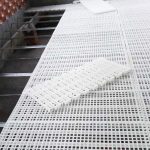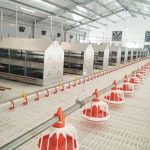In order to improve the economic benefits of egg-free poultry plastic flooring for egg-laying ducks, we aim at the problems of going to bed, keeping warm and ventilating, breaking eggs, eating eggs, wasting feed, excreting ducks in the egg trough, lighting, cleaning, etc. Manure and other problems, put forward specific scientific feeding and management measures.
Poultry plastic flooring technology is a new technology for laying ducks that has been gradually explored in recent years. This technology is not affected by seasons, climate and ecological environment. In the promotion process of this technology, there are many detailed problems that are prone to appear. If you do not pay attention, it will have a great impact on the production performance of laying ducks. This paper analyzes the problems encountered in the breeding process of laying ducks one by one, and proposes related countermeasures.
1. The problem of egg duck going to bed
There is an adaptation process for ducks to change from free-range farming on the ground to farming with poultry plastic flooring. Therefore, the laying ducks must be transferred to the net-raising duck house before the start of production (that is, the heifer stage) to avoid stress and reduce the production of laying ducks.
2. Warmth and ventilation issues
Compared with the traditional floor bedding, the temperature in the house is about 1.0-1.5℃ lower. In summer, the mesh will be more comfortable to ventilate. In winter, the ducks will have a feeling of ventilation when they sleep on the mesh, so that the ducks will not sleep well. Comfortable. Solution: Pay attention to insulation in winter. It is best to cover the duck house with insulation curtains or plastic sheets to prevent the invasion of thieves. At the same time, pay attention to ventilation to prevent carbon dioxide, ammonia and other hazards in the house.
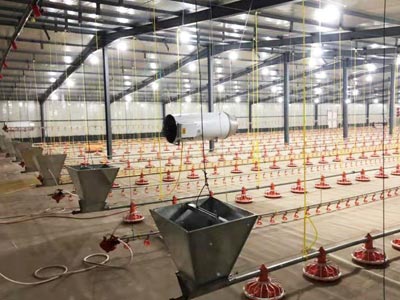
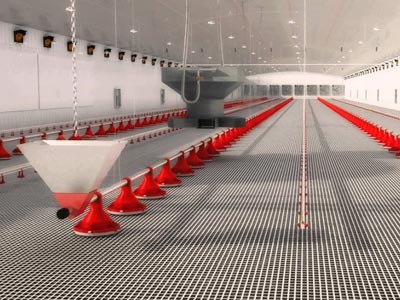
3. The problem of easy to produce broken eggs
The egg laying peak of egg-laying ducks is from 24:00 at night to 2:00 in Lingzhan. Due to the insufficient number of laying beds, many ducks will lay their eggs directly on the mesh: this way the duck eggs will roll on the mesh as the ducks move, so that the eggs and the The eggs collide with each other or the eggs and the mesh collide with each other, which is easy to cause the duck eggs to break: the solution is to set up more birthing beds on both sides of the duck house against the wall, surrounded by wooden boards, and covered with straw. Make it as big as possible while increasing the frequency of egg picking.
4. It is easy to cause the problem of ducks eating eggs
In fact, this problem is derived from the broken duck eggs. After the duck eggs are rolled around on the mesh and broken, the ducks originally have the gene that likes to eat fishy eggs. When they see broken duck eggs with fishy smell, the ducks naturally want to eat them. At the same time, the ducks imitate similar behaviors. At the beginning, it is easy to cause the strange state of duck egg production that the output of duck eggs is high one day and one day low, and the amount of feed will be low one day and high one day. Over time, more and more ducks eat broken duck eggs, even intact ones, resulting in a decline in duck egg production. The solution to this problem is to set up more mass production beds on both sides of the duck house against the wall, lay straw on it, and make the area of the production bed as large as possible, so that the ducks can lay eggs on the bed as much as possible, and at the same time increase the frequency of egg picking.
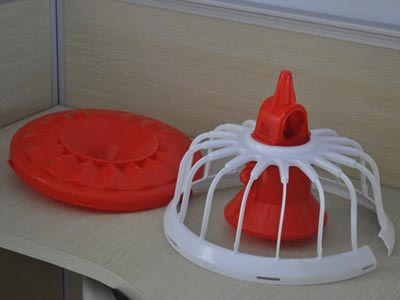
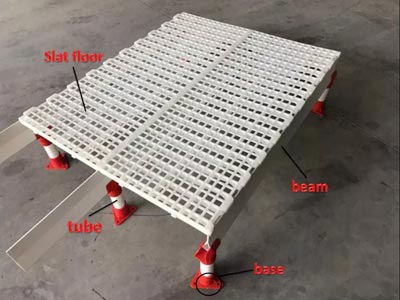
5. It is easy to cause the problem of feed waste
When ducks eat, they have the habit of taking a big mouthful of food and then slowly swallowing the feed on the ground. Due to the meshes in the pollry plastic flooring, the feed that the ducks put on the mesh will leak under the mesh and the ducks will not be able to eat it, resulting in a waste of feed. The solution is to place a large amount of plastic tarpaulin close to the feed trough, so that the ducks can put the feed on the plastic tarpaulin to avoid waste of feed.

